第89章
This Yankee philosopher, who, without being a Brahmin, had, in an uncongenial atmosphere, reached the perfect condition of Nirvina, reminded us all of the ancient sages; and we queried whether a world that could produce such as he, and could, beside, lengthen a man's years to one hundred and thirteen, could fairly be called an old and worn-out world, having long passed the stage of its primeval poetry and simplicity.Many an Eastern dervish has, I think, got immortality upon less laziness and resignation than this temporary sojourner in Massachusetts.It is a common notion that the world (meaning the people in it) has become tame and commonplace, lost its primeval freshness and epigrammatic point.Mandeville, in his argumentative way, dissents from this entirely.He says that the world is more complex, varied, and a thousand times as interesting as it was in what we call its youth, and that it is as fresh, as individual and capable of producing odd and eccentric characters as ever.He thought the creative vim had not in any degree abated, that both the types of men and of nations are as sharply stamped and defined as ever they were.
Was there ever, he said, in the past, any figure more clearly cut and freshly minted than the Yankee? Had the Old World anything to show more positive and uncompromising in all the elements of character than the Englishman? And if the edges of these were being rounded off, was there not developing in the extreme West a type of men different from all preceding, which the world could not yet define?
He believed that the production of original types was simply infinite.
Herbert urged that he must at least admit that there was a freshness of legend and poetry in what we call the primeval peoples that is wanting now; the mythic period is gone, at any rate.
Mandeville could not say about the myths.We couldn't tell what interpretation succeeding ages would put upon our lives and history and literature when they have become remote and shadowy.But we need not go to antiquity for epigrammatic wisdom, or for characters as racy of the fresh earth as those handed down to us from the dawn of history.He would put Benjamin Franklin against any of the sages of the mythic or the classic period.He would have been perfectly at home in ancient Athens, as Socrates would have been in modern Boston.
There might have been more heroic characters at the siege of Troy than Abraham Lincoln, but there was not one more strongly marked individually; not one his superior in what we call primeval craft and humor.He was just the man, if he could not have dislodged Priam by a writ of ejectment, to have invented the wooden horse, and then to have made Paris the hero of some ridiculous story that would have set all Asia in a roar.
Mandeville said further, that as to poetry, he did not know much about that, and there was not much he cared to read except parts of Shakespeare and Homer, and passages of Milton.But it did seem to him that we had men nowadays, who could, if they would give their minds to it, manufacture in quantity the same sort of epigrammatic sayings and legends that our scholars were digging out of the Orient.
He did not know why Emerson in antique setting was not as good as Saadi.Take for instance, said Mandeville, such a legend as this, and how easy it would be to make others like it:
The son of an Emir had red hair, of which he was ashamed, and wished to dye it.But his father said: "Nay, my son, rather behave in such a manner that all fathers shall wish their sons had red hair."This was too absurd.Mandeville had gone too far, except in the opinion of Our Next Door, who declared that an imitation was just as good as an original, if you could not detect it.But Herbert said that the closer an imitation is to an original, the more unendurable it is.But nobody could tell exactly why.
The Fire-Tender said that we are imposed on by forms.The nuggets of wisdom that are dug out of the Oriental and remote literatures would often prove to be only commonplace if stripped of their quaint setting.If you gave an Oriental twist to some of our modern thought, its value would be greatly enhanced for many people.
I have seen those, said the Mistress, who seem to prefer dried fruit to fresh; but I like the strawberry and the peach of each season, and for me the last is always the best.
Even the Parson admitted that there were no signs of fatigue or decay in the creative energy of the world; and if it is a question of Pagans, he preferred Mandeville to Saadi.